
Update (27 January 2026): Voluntouring.org only promotes volunteering and work exchange opportunities for adults (18+). We do not publish or promote placements that accept volunteers under 18.
This post is being reviewed and may be edited or removed to comply with this policy. See the full notice here: 18+ age policy.
Permaculture in Slovakia – To avoid poverty tomorrow, choose sobriety today!
 My name is David. I was born in Belgium, my mother tongue is French, and I am slowly learning Slovak. In my previous life, I saw ignorance, conformism, submission and unquestioning all around me. My questions that started with “why,” often received the same answer: “Because it’s like that”. Wanting to change things and people is severely punished. Despite this, for decades, I tried to find my place in this system that did not suit me at all.
My name is David. I was born in Belgium, my mother tongue is French, and I am slowly learning Slovak. In my previous life, I saw ignorance, conformism, submission and unquestioning all around me. My questions that started with “why,” often received the same answer: “Because it’s like that”. Wanting to change things and people is severely punished. Despite this, for decades, I tried to find my place in this system that did not suit me at all.
A long way followed by the current events (including the CREATION AND ACCEPTATION OF A NEW WORLDWIDE RELIGION), decided me to leave that stupid life forever. Most of people stay like they are.
I “composted” my relationships, which brought me less and less satisfaction.
Always talking about change, but blaming it on industrials and politicians… continuing to grow and consume in the same way, to do actually NOTHING.
Most people do not want anybody to criticise their own lifestyle and habits.
However, accepting criticism would be a good starting point.
I prefer to base my relationships on quality, instead of quantity, and… to make it clear… at my place, you will certainly never hear any usual or politically correct speech. I have a historical and systemic vision and understanding of the world, therefore I consider that having a restricted vision based on “what television shows”, is of course, extremely deleterious, destructive and unhealthy. I consider that “people” are massively ignorant and that this is the basis of the problem; I won’t get along with those who do not want to admit it or think that it’s a better idea to agree with everybody (+99% of people) or to love everybody.
I tried several times to find partners to grow our food, to start farming, and to become more sustainable.
Nobody gave a shit.
Sobriety!? A desired recession/decrease!? It sounds unpleasant… why should we go for it…
The richer the countries, the less people understand why they should make more efforts, stop consuming, etc.
Ok, what did I change?
I moved to a 4 hectares piece of land, surrounded by the woods, previously used to produce hay to feed big animals.
I planted 300 fruit trees, welcomed a few chickens, goats and sheep, and want to allow other animals to live on the same parcel, and to grow a part of my food.
In Slovakia, a little bit more people still produce a part of their food; trading with the neighbours is one of the best practices ever, to face the future.
I prefer to make an effort and to work every day, instead of asking “the system” to produce everything for me (with so many damaging consequences).
All the things that I don’t need to consume here, are not needing extraction (mining), transformation and transportation. It limits the impacts of my existence, in addition to providing a healthier daily life.
I will do my best to share the living space, instead of owning it.
I currently live in a caravan, that I heat with a wood stove, collect rainwater, and use solar panels (but my point is to become less and less dependent on electricity and other technologies).
Living like this means saving electricity, water, wood, and all the other available goods and resources, including gas, fuel, tools, clothes, and materials…
It offers the opportunity to deeply redefine our real needs.
Yes, I would like to build a small house (maybe half buried in the ground), but my priorities are definitely to manage the trees, the garden and the animals first.
Waiting for this to happen step by step, I still feed myself in a conventional way (but start to trade with the neighbours).
The projects that I already completed
- having a bore well and water on the parcel
- making a chicken house and playground, welcoming the first birds and having eggs everyday
- lanting 300 fruit trees (mostly old varieties, mixed with new ones, from all over the world) and individually protecting them, from being eaten by the deer and future goats.
- pruning the trees.
- building a greenhouse.
- building a shelter for the chicken
My current projects are
- building a shelter for the goats and sheep, before the winter
- adding a storage for the firewood
- holding the solar panels with a wooden structure that could be an additional shelter for some stuff
- building a “walipini” greenhouse
- building a root cellar, mostly made of local stones, and/or with earthbags
- there should be a half-buried house, somewhere, with a greenhouse facing the south, and this is a big project, even if I don’t really want the house to be big
Step by step, I’d like to welcome more animals.
Different breeds of chicken, birds like pigeons, and probably other animals in the future.
Bees should come soon.
The gardens have to be prepared, to slowly replace (a part of) the grass, which is currently everywhere.
Please note
I never used and will never use any chemicals on my property (I don’t need any certification for this).
What category best describes your hosting arrangement? 🏡
- Private/Individual/family
Location – Where is your volunteer project located?🌏
What are you looking for help with?
- Animal keeping 🐓🐴
- Building 🛠
- Cleaning 🧹
- Teaching/Language Exchange 🧑🏫
- Farming/Gardening 🌿🐄
- General Help 💁♀️
What’s the mission of your community? 🎯
Doing a lot with fewer resources takes more time but prevents squeezing the environment every day. All the calories that I’m burning myself, are the ones that I won’t ask the system to burn and waste for me. All the useless items that I don’t buy, don’t need to be produced (that includes extraction, transformation, transport, “recycling”…).
Volunteers with disabilities ♿✅
Volunteers with disabilities are welcome. There is a 1km unpaved road to access the land. The last meters are a bit muddy in winter; that means that a normal city car could hardly help you to get here in winter. The land can be accessed by any car from spring to autumn. Dogs should be calm and educated, otherwise, they could disturb the other animals, and/or request permanent attention/supervision.
Coming with children is also delicate: a few areas could be dangerous, due to the current construction projects.
How many volunteers could you host? 🎎
- A couple of volunteers
When do you usually need volunteers? 📅
Could be all year round, depending on the volunteer’s expectations.
How many hours of help per day? ⏱
- No schedule, read the “Note about the volunteer work” section
How many days of help per week? 🌒
- 5 days per week – 2 days off
Note about the volunteer work and other expectations 📝
Once you are here, there is nobody and nothing around, but the woods and a few animals. Sometimes, we can meet bears and friendly neighbours who also keep bees, and make their own harvest and homemade products.
Being calm, patient and careful with the tools and stuff, is highly appreciated.
I don’t want to define a schedule for my helpers: the place is remote, silent… there is almost nothing else to do here, than living, enjoying and sharing all the daily routines and tasks. Therefore, saying that you will “start at 8:00 and finish at 16:00”, is perfect nonsense. All the helpers that visited me, were just living here with me, without having any schedule.
Are accommodation and food included? 🏠🍜
Yes, we offer food and accommodation
What type of accommodation can you provide? 🏕
- Tent 🎪
For the helpers, I currently cannot provide luxurious accommodation. This is another project…
The best would be to come here with a camper van. If you can’t come with your van, a big tent is available with a camp bed.
I can provide electricity, fresh water for drinking/showering, and food.
Toilets are outside, all around.
Diet – nutrition information 🥗🥤
I’m used to cooking simply. Managing a lot of daily tasks result in simpler recipes. Sometimes I eat raw vegetables, salads, and sprouts; I eat everything but in different proportions than what “the system” sells to us. Our DNA is the same as it was before the industrial revolution. It doesn’t make any sense for our body to eat enormous amounts of milk, meat, wheat… and processed food. It’s unhealthy.
I don’t like extremes.
We can discuss this topic on the phone or chat.
Also, depending on the weather, we can cook in the caravan, outside or in the main tent. We can share the meals, and all of us can let creativity speak.
Until now, a few weeks only after moving to the new piece of land, I still don’t produce what I need.
Only a few mushrooms in the woods, some veggies, walnuts and berries are available!
We can get products locally (from the neighbours) or from zero-waste and bio shops.
We can also go there together, to meet interesting people.
Fee transparency 🆓🔍
Nothing to pay.
Are you able to assist with visa support, and information, or provide invitation letters? 🛂
Yes, we can help with Visa/invitation letters ✅
Volunteers’ benefits 🏆🏅
I can share the basis of my lifestyle, and my self-sustainability methods, show how it’s possible to interact and exchange with the neighbours, how to use hand skills and a wide knowledge of materials and tools. Being here and helping with the daily tasks and projects that make sense, in the middle of nature, is what you’ll get.
What are the activities during free time? 🚴🚣🦒
With a car, it’s easy to get to Detva, Hriňová, Lučenec or Veľký Krtíš.
In these cities, you can find all kinds of shops, several restaurants, a swimming pool, a climbing rock, traditional farms, beautiful sky and hiking paths, waterfalls, and mountain bike paths in nature. Once you are here, there is nobody and nothing around, but the woods and a few animals. Sometimes, we can meet bears and friendly neighbours who also keep bees, and make their own harvest and homemade products.
You can rest in the hammock, read books, go for a walk or a running session in the wood…
Language 🗣🇬🇧
French is my native language; I speak English fluently and I am learning Slovak.
Geography 🌳
Dolný Tisovnik is located in the South part of Slovakia, at the foot of the Carpathian Mountains.
The place is remote, surrounded by wood and forest; it’s an almost “untouched” place that still shelters a small part of biodiversity (the greater the relief, the less human activities develop).
We’re also not far from Poľana, un volcan endormi.
The weather is nice all year round, and fairly balanced until now, even if precipitation tends to congregate and drought periods become more intense and longer (like in a lot of other countries).
How to get to your site ✈ 🗺
By car is the best.
You can also arrive by plane and use the train/bus to get to Detva. The closest airports are Budapest and Bratislava.
Is there internet access? 🌐
Yes, but not very strong.
CONTACT DETAILS 🔍📧
To get in touch with David, kindly send an email to voluntouring.freelist@gmail.com with the subject line “Permaculture in Slovakia Volunteer Exchange.” We will make every effort to respond promptly and provide you with the host contact details. Thank you for your interest!
See more volunteering opportunities in Slovakia 🇸🇰
Voluntouring promotes opportunities rooted in cultural exchange and mutual learning. Before you apply, check that the exchange is fair, realistic, and well supervised.
Local rules: visa conditions and requirements vary. Please check what applies to your destination before confirming an exchange. Learn more.
About this type of listing: Browse work exchange listings · Browse non-profit listings
Safeguarding: roles with children or vulnerable people should be supervised, clearly defined, and never replace trained staff.
Useful links: Report a listing or unsafe content · Orphanage business and red flags · Safer ways to volunteer with children

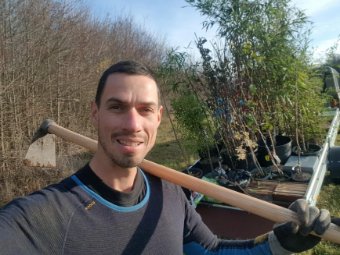

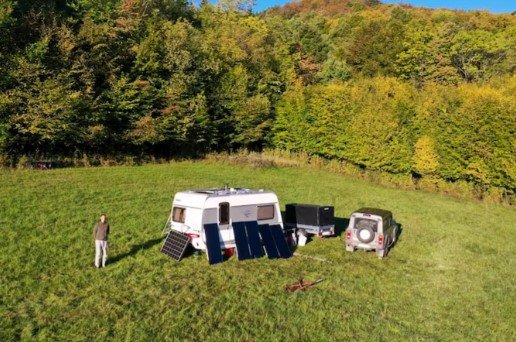
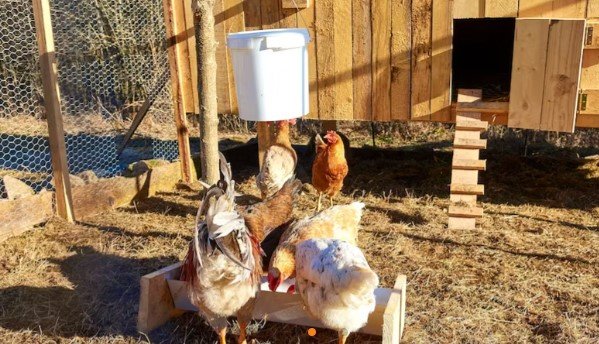






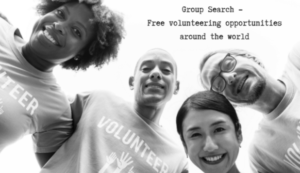
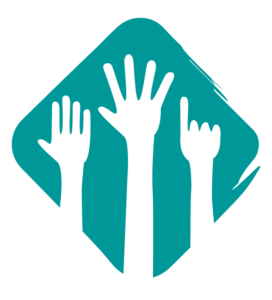
How much is a volunteer compensated per hour, and what are the terms of the contract?
Volunteers typically are not compensated, as the nature of volunteering implies offering services without expecting monetary reward.